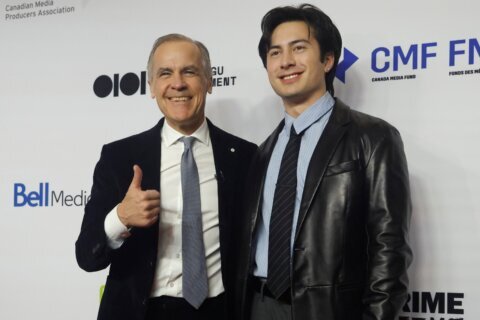WASHINGTON — Perhaps it was in the stars that NASA’s heroic astronaut John Glenn died the same month that a new film arrives to re-examine his mission.
“Hidden Figures,” which opened in limited release on Dec. 25 and goes nationwide Friday, not only serves as a touching tribute to Glenn’s enduring heroism, it also shines an important light on three, unknown heroes who became NASA’s secret weapons behind the scenes against impossible odds.
Based on the eponymous book by Margot Lee Shetterly, the film drops the viewer in 1961 Virginia, where we meet three, math geniuses who just happen to be African-American women: Katherine Johnson (Taraji P. Henson), Dorothy Vaughan (Octavia Spencer) and Mary Jackson (Janelle Monáe).
They work in the segregated West Area Computers division of NASA’s Langley Research Center in Hampton, Virginia, during the height of the Space Race against the Soviets. Overcoming sexism and racism in the workplace, these women crunch the numbers behind NASA’s Mercury 7 space mission, calculating flight trajectories to make John Glenn (Glen Powell) the first American to orbit the Earth.
The trio of lead actresses all have “the right stuff.” Octavia Spencer earns a Golden Globe nomination teaching herself to program IBM’s state-of-the art computers so that her skill set doesn’t become obsolete. Meanwhile, singer-turned-actress Janelle Monáe petitions a judge to attend an all-white high school for her engineering degree. While Spencer is a previous Oscar winner (“The Help”), Monáe impressively holds her own, having never appeared in a film before “Moonlight” this year.
Still, the movie mostly belongs to Taraji P. Henson (“Empire”), who’s forced to take breaks from her calculations to run across campus to use the segregated bathrooms. Her prolonged absences begin to bother her supervisor Al Harrison (Kevin Costner), who finally confronts her in a showstopping scene where Henson reveals her day-to-day hardship. Costner’s reaction is worth the price of admission, shouting, “Here at NASA, we all pee the same color,” before taking a hammer to a “Colored Only” sign.
At this point in his career, Costner seems at ease in such managerial roles, recalling his football general manager in Ivan Reitman’s “Draft Day” (2014). Unlike other films’ more activist heroes, his character’s colorblindness is purely economical; he hates any barriers that will slow things down. This argument is an important element to the film, appealing to viewer’s minds, as well as their hearts.
Rounding out the cast are a bunch of familiar faces. Mahershala Ali (“House of Cards”) plays a military officer courting Henson, ironic considering he dates Monáe in “Moonlight;” Kirsten Dunst is a racist NASA employee spitting dialogue that’s unrealistically harsh; and Jim Parsons is the snarky in-house antagonist sabotaging Henson at every turn. I get that he’s a math whiz on TV’s “Big Bang Theory,” but I worry he’s becoming typecast as Sheldon, just like Michael Richards after Kramer on “Seinfeld.”
Directed by Theodore Melfi (“St. Vincent”), who co-writes with Allison Schroeder (“Mean Girls 2”), there’s nothing all that groundbreaking in the directing. Aside from the motif of Pharrell’s song “Runnin'” during high-heeled bathroom sprints, the movie largely plays it safe. Its subtext isn’t as subversive as “The Imitation Game” (2015), its scope isn’t as epic as Philip Kaufman’s “The Right Stuff” (1983), and its splashdown finish isn’t as suspenseful as Ron Howard’s “Apollo 13” (1995).
Normally, this lack of inventiveness would leave us in typical 3-star “feel-good movie” territory, but “Hidden Figures” rises above standard fare on the power of its performances and the sheer importance of bringing this story to light. Call it Oscar bait if you must, a by-the-number tale of math prodigies putting the “race” in Space Race, but who cares? It’s a total crowd pleaser revealing hidden heroes lost to history due to their race and gender, culminating with a timely tribute to John Glenn.
To paraphrase that famous transmission from mission control to Mercury 7: “God speed, John Glenn … and God bless the math equations of Katherine Johnson, Dorothy Vaughan and Mary Jackson.”








